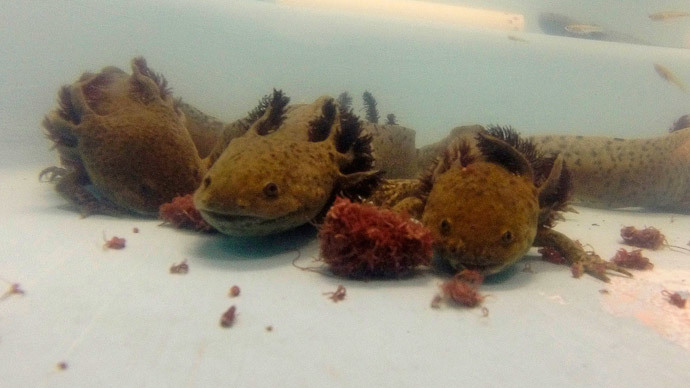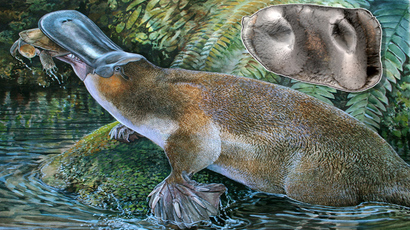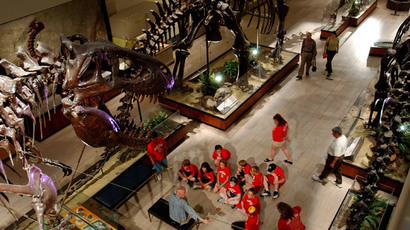Species dying out 1,000 times faster with humans on the scene – study

The world is on the brink of a sixth great extinction of species, a new study says. Species of animals and plants are currently dying out at least 1,000 times faster than they would without human interference.
Before humanity became dominant on earth, an average of one species per 10 million became extinct each year. But now between 100 and 1,000 per million cease to exist annually, says a study by a group of authors led by biologist Stuart Pimm of Duke University.
"We are on the verge of the sixth extinction," Pimm said. "Whether we avoid it or not will depend on our actions."
The biologists estimated prehistoric extinction rates based on molecular phylogeny, a technique that tracks relationships between different species through similarities and differences in their DNA. Phylogenic trees charted this way gave them an upper limit on background extinction, which they could then compare to modern extinction data.
The latter was also an estimate, because we don’t really know exactly how many species exist, with scientists describing only about 1.9 million out of as many as 11 million that are probably living on earth.
The findings didn’t come as much of a surprise. Previous studies indicated that extinction rates are now higher than they used to be, but they put the number at the lower range of what Pimm and his colleagues suggest.
The prime factor behind the high death rate is the shrinkage of natural habitats, the study published on Thursday by the journal Science says. Our less intelligent cohabitants find themselves with no place to live, as we take over and change environments to our benefit.
Other factors are the introduction of alien species into habitats thanks to human activity, climate change and unsustainable consumption by humans.
But despite the bad news, the research is "optimistic," Pimm told LiveScience, and there is hope for preserving biodiversity.
"Although things are bad, and this paper shows that they're actually worse than we thought they were, we are in a much better position to do something about that," he said.
New technology, like satellite imaging, dedicated smartphone apps and social networks, combined with the effort by citizen scientists are allowing conservationists to help species in trouble better than ever before.
Scientists have evidence of five major extinction events in the past, in which large amounts of species disappeared due to a rapid, often catastrophic environmental change. The worst of them happened some 252 million years ago and wiped out up to 96 percent of marine species and 70 percent of terrestrial vertebrate species. The cause is not known for certain, with a meteor impact, massive volcanic activity, depletion of oxygen in oceanic water and other possible hypotheses being discussed.














